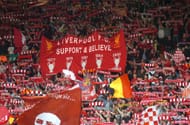The English Premier League changed the whole concept of what it meant to be a football fan. As stars were signed from all over the world, as football became ‘sexy’, as the product called EPL found buyers in more than 200 countries worldwide, money from sponsorship, merchandising, television, gate receipts, hospitality e.t.c poured in. Huge fees were demanded and paid as the big teams toured new markets. Players became millionaires and global celebrities – a million miles away from the lifestyle of the average football fan.
Earlier, there were clear hierarchies of fandom. There were guys who never missed a match, home or away, who would crawl off their death bed and travel by ambulance to make sure they didn’t spoil a record that stretched back more than 20 years. They were people deserving of some special respect. Next were the season-ticket holders, particularly those who generally travelled to most of the away games. A distant third were the ‘part-time supporters’ who attended the occasional game but were generally tolerated with borderline contempt. The armchair critic – who saw every defeat as a justification for not going to the games and every victory as unsustainable and a flash in the pan – was just an irrelevant irritation.
Football had always been about money – usually the Chairman’s, and he was expected to dig deep and bankroll the big signings. The fans were expected to turn up when it was 15 degrees below freezing point and blowing a gale even though the team had not won 15 games, was anchored at the bottom of the table and was playing Rotherham (no disrespect)! The Club had a right to expect the fans’ support no matter what. That was the deal.
The reality, however, was that if the team was ‘rubbish’, the crowds would drop. The fans may have been addicted but the degree of addiction varied. Only Manchester City could drop through the divisions and still maintain a substantial proportion of their support. Their collective personality was formed in the shadow of Sir Alex’s Ferguson’s Manchester United. You had to have sado-masochistic tendencies to commit to barren City when United were right there on the doorstep gathering gold. Thus, no fans in football deserved last season’s stunning climax more than the genetically-frustrated sky-blue legions, or to simply put it, the Blue half of Manchester.
The success of the EPL has attracted foreign investors – businessmen, many of whom know nothing about the game but everything about generating revenues, exploiting global-market opportunities, developing databases, tracking sales and cross-selling. Smart Card technology allows a football fan to gain entry to the stadium without the need of a ticket. It can be used to make purchases at the club shop. Whatever you buy, whenever and wherever; the data is captured, recorded and analysed, and the information is used to identify further sales opportunities.
As the fan base has become more diverse and geographically scattered, the need for CRM (Customer Relationship Management) and the use of related technologies has increased. All the Big Clubs have huge fan-bases throughout the world, and the competition to attract and retain supporters is fierce. Arsenal have a guy in China driving their business across the continent, and Chelsea have one in Singapore. Although global interest in the EPL is unprecedented, the rest of elite level football follows a similar pattern.
Take a look at Manchester City’s website and see how many advertisements you can find. None. However, that doesn’t mean that City are not as commercially focused as their competitors. On the contrary, City use smart cards to track every sale from match tickets to merchandise, and integrated database technologies to customize their ‘offering’ to more than 30 different customer segments with the intention of driving sales by being informed and responsive, and delivering a high quality of customer service. If you buy a ticket online, you can ‘sit’ in the exact seat and know the position and view of the pitch you’re buying. Glory hunters with big wallets are more than welcome.
Football clubs still draw their hardcore support largely from their immediate locality, but all the big clubs have eyes on Asia, and on other markets across the world. The depth of ‘addiction’ towards a particular club may vary between those fans born and raised in Manchester and Mumbai. The loyalty may not be as robust in India, China, or in other parts of Asia as it is in the club’s home city, but the sheer number of fans in these countries, and their purchasing power means that all the big clubs will be heading to Asia – including Asia – on a regular basis.
Whether we like it or we don’t, the reality is that the fundamental character of football has changed. It has moved from ‘local’ to ‘local and global’. Fans are measured and valued in terms of their purchases and uplift potential, and the focus is upon increasing the revenues. Television now contributes more income than ticketing, and drives revenue from sponsorship. All of this is good news for MBA Football industries candidates, and for fans in India who can reasonably expect to see their heroes playing ‘live’ in Delhi, Bengaluru, Kolkata or Mumbai in the near future.

